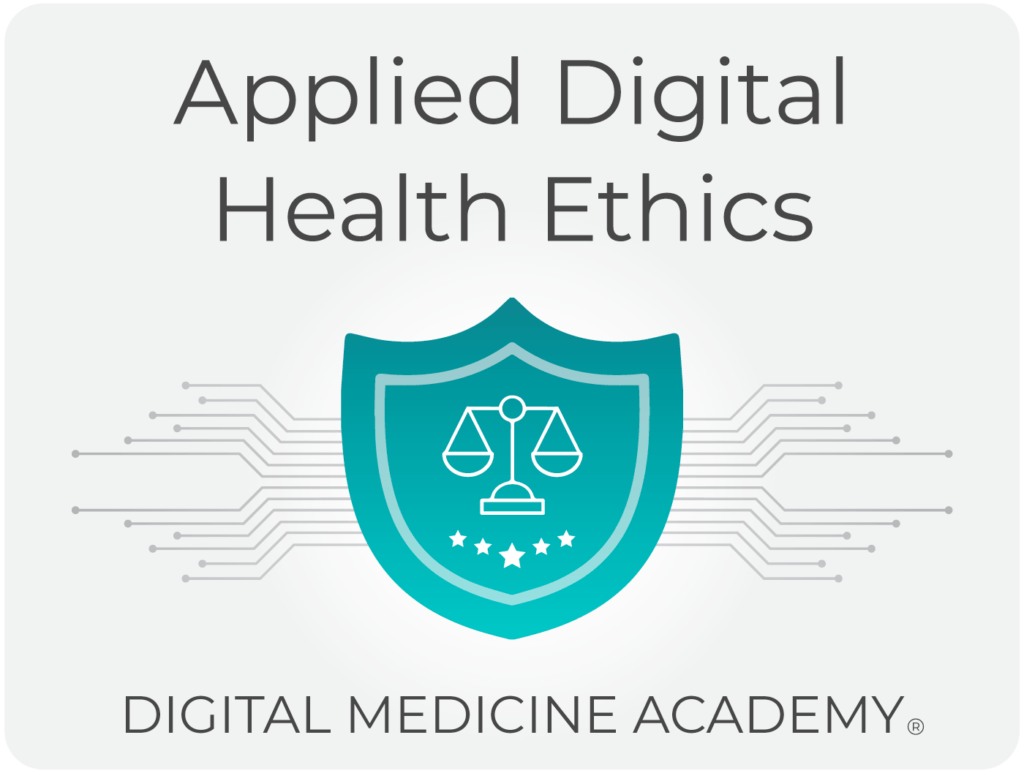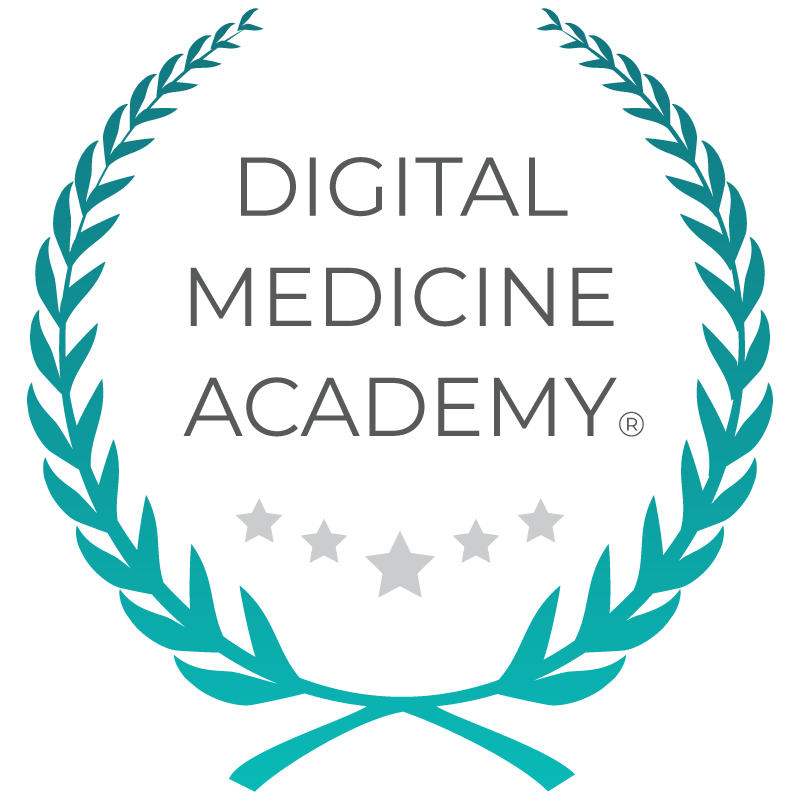
Equipping the next generation of pharmacists to succeed in the digital era
“The Applied Digital Health Ethics course had the exact information I was looking for and at the right length for our students. The fact that it was free and they would earn a badge after completing the course made it even better.”
The University of South Carolina (USC) College of Pharmacy prides itself on high-quality education, a family atmosphere, a vibrant campus, and top-tier faculty – it now can also add “digital health innovator” to the list.
Led by Patti Fabel, Pharm.D., BCPS, FAPhA, the executive director of the Kennedy Pharmacy Innovation Center and a clinical professor at the USC College of Pharmacy, the college developed and taught an Applied Community Pharmacy practice skills lab on digital health in pharmacy. The course culminates with students taking Digital Medicine Academy®’s Applied Digital Health Ethics course.
We sat down with Dr. Fabel to hear more about the lab, how she built it, and what results she’s seen from more than 100 students who have taken the class. Read on to hear what she had to say!
Why do you think it’s important for pharmacists to be trained in digital health?
I work with some of the most dedicated students, researchers, and practitioners who are transforming health care for South Carolina and beyond – so, we take great pride in creating a high-quality, forward-thinking learning environment. Digital health is very clearly a key part of the future of healthcare. And I believe that a good pharmacist needs to be educated on anything being used to research, treat, or touch a patient; digital health is very much that.
A few years ago, I started looking at ways to include digital health in our curriculum. We already did a good job at covering information technologies, electronic health records (EHRs), dispensing systems, and continuous glucose monitors (CGMs). And we did some limited coverage of mobile health applications to improve adherence to medications. However, I felt we needed to do more related to technologies patients use in real time to manage their health. Earlier this year, I was asked to create a lab session in one of our practice laboratory courses related to digital health, so I jumped at the opportunity.
How did you build the course?
I felt very comfortable developing a lot of the content for the curriculum, particularly around defining digital health and the community pharmacist’s role in the use of digital health products and artificial intelligence (AI). However, digital health ethics wasn’t my area of expertise, and I didn’t have the bandwidth to research it on my own.
I had heard about the Digital Medicine Society (DiMe) at a conference a few years ago and signed up to receive their emails. I had been watching closely at all the new resources and courses they put out. When I looked at the Applied Digital Health Ethics course on its Digital Medicine Academy® site, it had the exact information I was looking for and at the right length for our students. The fact that it was free and they would earn a badge after completing the course made it even better.

What do your students learn during the course?
The lab is Applied Community Pharmacy which is designed to provide students an opportunity to practice – and then demonstrate – advanced skills required of a community pharmacist. They learn about, and then demonstrate, practices including:
- Evaluating select digital health products used by patients to treat or manage disease states.
- Comparing and contrasting deprescribing care plans developed by AI and student pharmacists.
- Identifying the risks associated with the use of digital health products and AI in health care.
- Defining risk mitigation strategies for the use of digital health products and AI in health care.
At the end of the lab, students enroll in and complete DiMe’s course, which teaches them how to navigate ethical challenges associated with using digital technologies in practice. They also learn about keeping equity front-of-mind and building patient trust with digital healthcare solutions.

What’s been the response to this course?
It’s been fantastic. The advanced practice lab is currently in the third year of our curriculum and we just added an introductory digital health lecture in the first year. My colleagues and I enjoy teaching this subject but the best part is hearing what the students think about it – one of our 2026 Pharm.D. Candidates, Arran Montgomery, shared:
“The Digital Medicine Society ethics course has helped me to understand the critical role ethics plays in the rapidly advancing landscape of healthcare technology. By gaining a comprehensive understanding of the ethical implications associated with the misuse of digital medicine, I am better equipped to minimize potential harm. As a future pharmacist, this knowledge will enable me to provide safe, effective, and compassionate care to my patients.”
We really feel like we accomplished what we set out to do – making sure that the next generation of pharmacists is equipped to properly and safely use digital technology to further our field and help patients.



